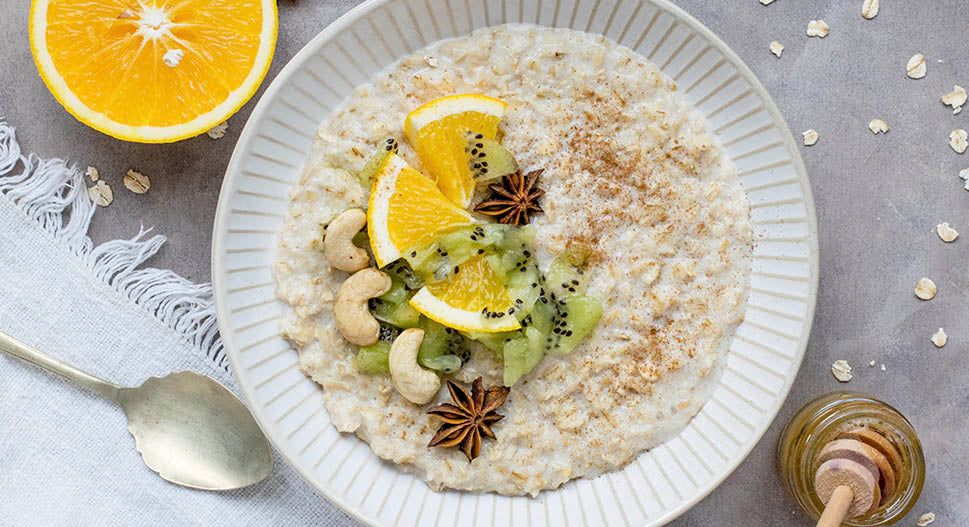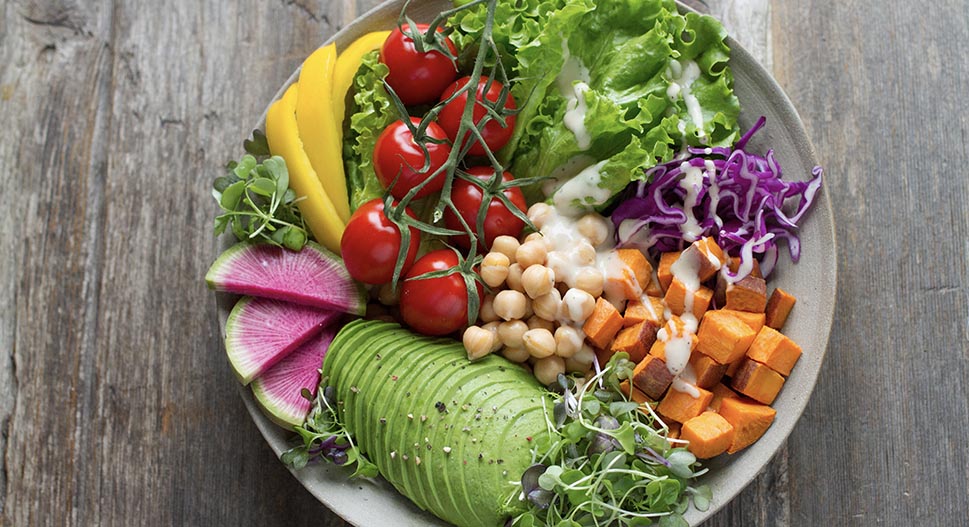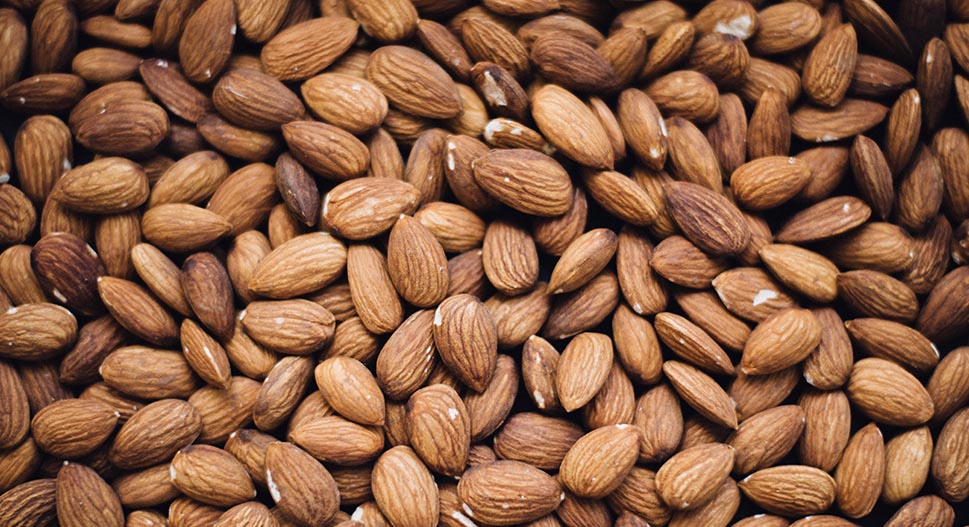
Given the rapid rise in kombucha, sauerkraut and probiotic products, it’s pretty clear that gut health is on everyone’s mind. And with good reason. Having a healthy gut is so important. More and more research is emerging showing just how important good gut health is for overall wellbeing.
BASIC GUT PHYSIOLOGY
A healthy gut contains a balance of good and bad intestinal bacteria (also referred to as microbiota). Beneficial gut bacteria help manufacture vitamins (B12, K, B6, B5, B3, folate and biotin), enhance absorption of minerals as well as maintain a healthy intestinal mucosa. The mucosal barrier performs an important role in maintaining a healthy immune system as it serves as the first line of defence against pathogens. In addition, almost 70% of our immune system cells live in or around the gut.
IS YOUR GUT HEALTHY?
There’s no universal definition for ‘good gut health’ and to complicate things the gut microbiome varies from person to person. The symptoms of poor gut health may include gas, bloating, nausea, stomach cramps, constipation or diarrhoea. However, it’s not all about gut symptoms. Poor gut health can be expressed in other ways including weight gain, anxiety and insomnia. It can also affect your general wellbeing too by shaping your mood and your desire for certain types of food.
Studies show that the influence your gut microbiota is far from local. The reason for this is because your gut is actually the gatekeeper for your inflammatory response. Inflammation tends to be a hallmark of most chronic diseases. For example, diseases such as inflammatory bowel syndrome, obesity, allergies, autoimmune and cardiovascular disease are all being linked to the gut microbiome

IMPROVE YOUR GUT HEALTH
There are a number of diet and lifestyle-related factors which can impact your gut health. Here are 10 practical tips on how you can improve your gut health.
1. Get to the root cause
While there can be many causes of gut trouble, there is usually always an underlying cause. Identify it before you mask symptoms with medications and eliminate entire food groups unnecessarily. Contributors of poor gut include long term use of non-steroidal anti-inflammatory drugs, antibiotic use, excessive intake of sugar and refined carbohydrates, excessive alcohol consumption and stress to mention but a few
2. Eat some carbs
Nutrient-dense, high-fibre carbohydrates like vegetables, beans, and wholegrains are important in the diet. Eating enough fibre plays a significant role in gut health. Fibre resists digestion in the small intestine and when it reaches the large intestine, it ferments, creating short chain fatty acids (SCFA). SCFA are an important source of fuel for the cells of the gut. Fibre also adds bulk to our stools, reducing our exposure to potentially dangerous compounds. The breakdown of fibre also regulates pH balance, promoting the optimal environment for beneficial bacteria. The key too good gut health is to focus on fibre.

3. Drink wisely
Water is essential for life and important for digestion and general gut health too. We need water to digest solid food and absorb nutrients properly. Without sufficient water, you are likely to get constipated. Alcohol on the other hand, if drunk in excess has been found to negatively affect gut health.
4. Ditch the artificial sweeteners
Studies suggest that low calorie sweeteners can wreak havoc in the gut by drastically altering your microbiota for the worse.
If you are particularly struggling with bloating and cramping, eliminating artificial sweeteners (think sugar free drinks, desserts, gum, protein powders, protein bars, etc.) may help.
5. Cut out the junk
Your gut doesn’t like processed fatty, sugary foods (such as a typical Western Diet). Refined carbohydrates and sugar have been shown to negatively influence your gut integrity. In addition, excessive intake of refined carbohydrates has been found to suppress “good” bacteria and increase “bad” bacteria.

6. Think colour
The different colours of fruit and vegetables represents the different flavonoids in the food. Research has shown that flavonoids can help improve gut health. In addition, it’s important to eat a wide range of plant-based foods as a healthy gut has a diverse community of microbes, each of which prefer different foods.
7. Check iron levels
A decreased iron status is associated with poor gut function. Low iron can result from a low iron intake, gut malabsorption or an increased consumption of mineral-binding foods such as grains and legumes. Vegetarians/vegans and endurance athletes are especially prone to the latter.
8. Eat the right type of fat
Eat plenty of omega-3s (flax, walnuts, hemp, chia, fish, algae) and other plant fats (such as olives, avocado, nuts and seeds etc.) to help moderate inflammation and to boost the diversity of your gut bacteria. Extra-virgin olive oil also contains a high number of microbe-friendly polyphenols.

9. Slow down
The process of slowing down and chewing is important for enzyme release and breaking food down into particles that are manageable for the gut. How you eat can be as important as what you eat.
10. Stay calm
Sleep, stress management and exercise are necessary for renewal of the body and controlling inflammation.
It is therefore important to manage your stress and build time in for relaxation into your daily routine. Taking care of your emotional well-being is important for your physical well-being.
References:
-
- Sekirov, I, Russell, SL, Antunes, LC, Finlay, BB: Gut microbiota in health and disease.
Physiological reviews, 90: 859-904, 2010.
- Heiman, ML, Greenway, FL: A healthy gastrointestinal microbiome is dependent on dietary diversity. Molecular metabolism, 5: 317-320, 2016.
- Graf, D, Di Cagno, R, Fåk, F, Flint, HJ, Nyman, M, Saarela, M, Watzl, B: Contribution of diet to the composition of the human gut microbiota. Microbial Ecology in Health and Disease, 26: 10.3402/mehd.v3426.26164, 2015.
- Benedict, C, Vogel, H, Jonas, W, Woting, A, Blaut, M, Schurmann, A, Cedernaes, J: Gut microbiota and glucometabolic alterations in response to recurrent partial sleep deprivation in normal-weight young individuals. Molecular metabolism, 5: 1175-1186, 2016.
- Clarke, SF, Murphy, EF, O'Sullivan, O, Lucey, AJ, Humphreys, M, Hogan, A, Hayes, P, O'Reilly, M, Jeffery, IB, Wood-Martin, R, Kerins, DM, Quigley, E, Ross, RP, O'Toole, PW, Molloy, MG, Falvey, E, Shanahan, F, Cotter, PD: Exercise and associated dietary extremes impact on gut microbial diversity. Gut, 63: 1913-1920, 2014.
- Mahesh S. Desai et al. A Dietary Fiber-Deprived Gut Microbiota Degrades the Colonic Mucus Barrier and Enhances Pathogen Susceptibility. Cell, November 2016






























































